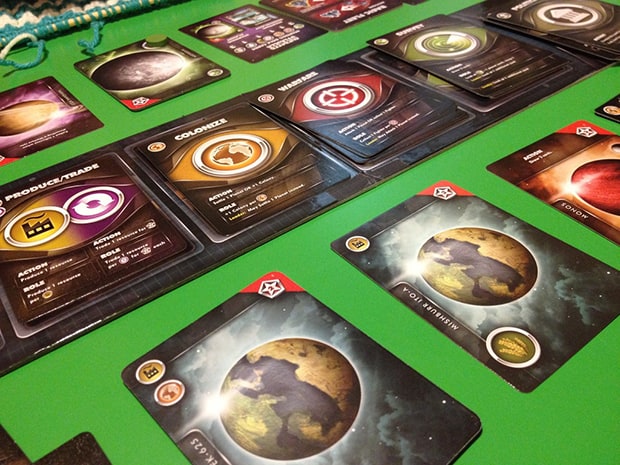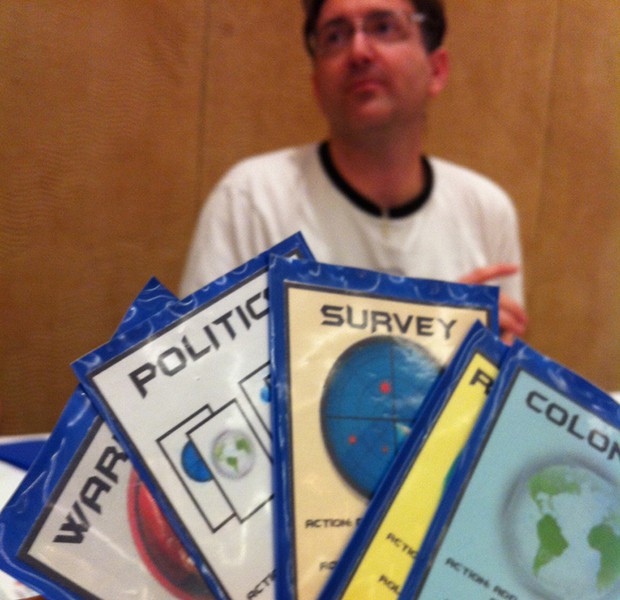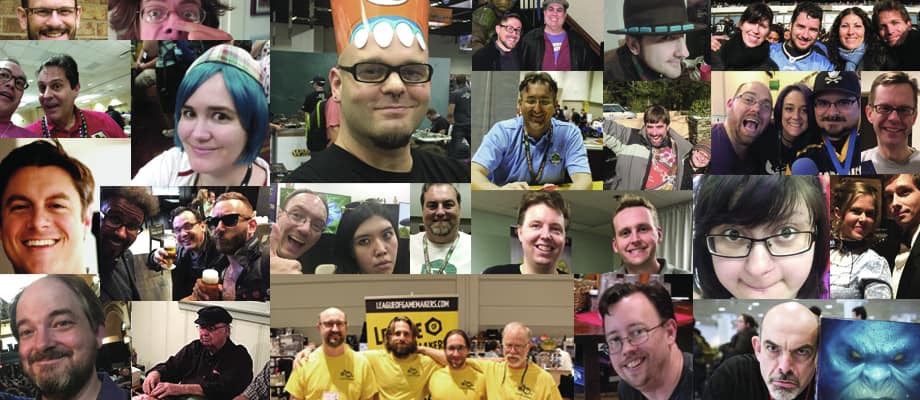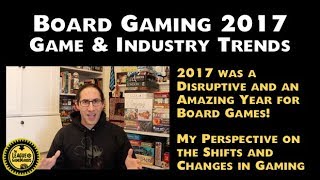
I was once offered the opportunity to write something up for Why I Design Games – Collected essays from established game designers on the theory, art, and compulsion of board game design. I was excited about the opportunity, but when considering why I design games I found my thoughts coalescing more toward the question “how does one get into the game design hobby?” So I answered that question instead. Here I revisit my response:
I have been interested in and involved in game design for about 12 years now. Even before I got into board game design, I spent many years building decks in Magic: the Gathering (which is very similar to game design). It’s been so long I can’t really remember how I got into it, or what it felt like NOT to be interested in game design. Someone asked me recently how to get into the hobby, and after some serious thought this is the advice I had for him:
1. PLAY A LOT OF GAMES
And a lot of different types of games too. There are some who prefer to keep their distance from other designs so as not to be influenced by them. design superstar Reiner Knizia swears by this model. I do not subscribe to that at all. I like to play a lot of games (especially new games) to see what’s out there – see what works and what doesn’t. I like to keep up to date with advances in game technology, and having a library of proven mechanisms to draw from can be very helpful.
2. DON’T RE-INVENT THE WHEEL
Utilize resources such as the Board Game Designers Forum and BoardGameGeek design forums. There is a healthy amateur design community that is welcoming of new designers and is often willing to critique game ideas and rules. Everybody has their own opinion on how a game “should” be, so take all advice with a grain of salt, but any advice is better than no advice!
3. JUMP IN
The only way to make any real progress as a designer is to design something. Your first game will not be your best, so if you have a favorite idea that you’d love to make a game out of, then you might want to save it for after you’ve got the hang of things. Don’t start with anything too ambitious or you’ll never finish. Something that can help is a design exercise such as the monthly Game Design Showdown at BGDF.com – a week long challenge to come up with an idea based on some specific restrictions (a required component or mechanism, a specific theme, etc).

Eminent Domain first prototype
4. PLAYTEST, PLAYTEST, PLAYTEST
That amateur design community I mentioned above? They’re organizing more and more all the time! Nowadays there are 2 major series of designer conventions: Protospiel and Unpub. Each of those has it’s own style, but both are great outlets for playtesting and sources for designer feedback. In my experience, Protospiel events are best for early stage designs, with room for sweeping changes, which can benefit more from designer commentary. Unpub events on the other hand seem best for late stage designs, approaching completion, which benefit most from end-user feedback for some fine tuning.
There’s a lot of information out there, but the best advice that tends to get repeated over and over is this: Design a game you’d like to play. Don’t worry about marketing or publishing anything – that’s putting the cart before the horse. Just make a game you’d enjoy, and then play it with your friends and see if they enjoy it too. Once you get the hang of designing it’ll be easier to work in typical publishing concerns, and take on projects that you think will be more accessible or have a wider audience.
So that’s my advice. Designing games is not for everyone – but if you’re the type who finishes each game saying “that was cool, but it would be better if…” then maybe you’d enjoy coming up with your own game!
… but is that good advice? Who is this Seth Jaffee guy anyway, and why should we listen to him? Fair enough – here’s a little bit about me:
My name is Seth Jaffee, and I’m a Game Designer. My friend Michael Mindes started a publishing company back in 2009 called Tasty Minstrel Games, and I am TMG’s Head of Development. Here are some of the games I’ve worked on:
PUBLISHED GAMES – DESIGNER CREDITS
Terra Prime – Space exploration and colonization pickup/deliver game.
Eminent Domain – Role selection / Deck building game about building a space empire.
Eminent Domain: Escalation – Expansion #1 to Eminent Domain.
Eminent Domain: Exotica – Expansion #2 to Eminent Domain.
Eminent Domain: Microcosm – A quick playing, 2-player microgame of hand management similar to Eminent Domain.
Brain Freeze – iPad game (free download!) of speed and strategy.
Isle of Trains (Co-Designer) – Hand management game of building trains and delivering goods.
PUBLISHED GAMES – DEVELOPER CREDITS
Homesteaders, by Alex Rockwell – Resource management and auction game set in the old west.
Belfort by Jay Cormier and Sen-Foong Lim – Worker Placement / Area Majority game about building a city in a light fantasy setting.
Belfort: the Expansion Expansion, by Jay Cormier and Sen-Foong Lim – Expansion to Belfort.
Ground Floor, by David Short – Economic game of entrepreneurship.
Kings of Air and Steam, by Scott Almes – Steampunk themed pickup/deliver game.
Captains of Industry, by Michael Keller – Heavy economic game where players control both supply and demand in order to claim the most market share.
Dungeon Roll, by Chris Darden – Resource management / press your luck dice game with a dungeon delve theme.
Harbour, by Scott Almes – Resource conversion game with a wicked market.
Scoville, by Ed Marriott – Euro style game of planing and breeding peppers to fulfill orders and make chile.
Gold West, by Alex J Kevern – Euro style game of mining and building in the old west.
Steam Works, by Alex Churchill – Steampunk themed worker placement game where you literally build the worker spaces out of components.
UPCOMING TMG TITLES – DEVELOPER CREDITS
Bomb Squad, By Dan Keltner and David Short – A tense cooperative game about programming a robot to navigate a building, rescue hostages, and disarm bombs.
Chimera Station, by Mark Major – Worker placement game where you customize your workers by splicing claws, tentacles, vines, and brains onto them.
Dungeon of Fortune, by Ken Gruhl and Quentin Weir – Press your luck card game in the same family of Dungeon Roll.
Eminent Domain: Battlecruisers, by Philip duBarry – Standalone game of bluff and doublethink in the Eminent Domain universe.
UNPUBLISHED GAMES – YOU CAN READ ABOUT THESE ON MY GAME DESIGN BLOG IF YOU LIKE:
Alter Ego – Cooperative deck building game of vigilante heroism (might be ready for GenCon 2016).
Crusaders: Thy Will Be Done – Rond-cala game about the Knights Templar and similar orders.
Exhibit: Artifacts of the Ages – Set collection game with a unique auction based on Liar’s Dice (has some non-TMG publisher interest).
Dice Works – Real time dice drafting game (TMG may publish this one day if the price is deemed viable).

Final version of Eminent Domain








